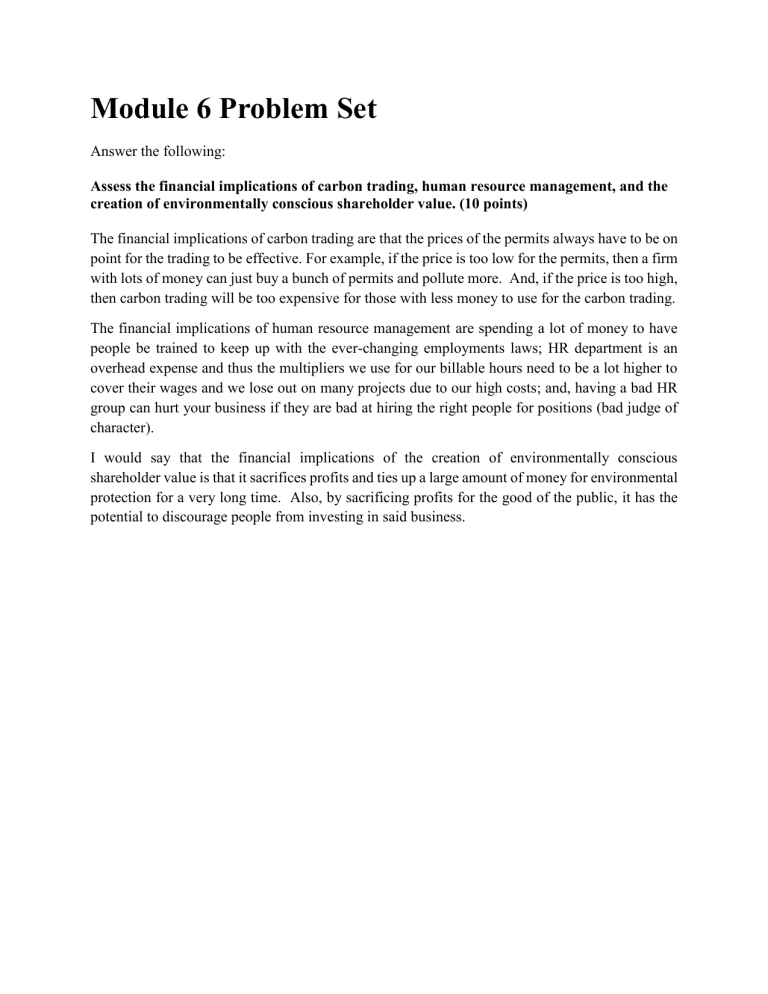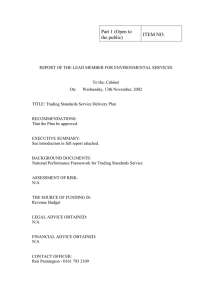Carbon Trading, HR, & Shareholder Value: Financial Implications
advertisement

Module 6 Problem Set Answer the following: Assess the financial implications of carbon trading, human resource management, and the creation of environmentally conscious shareholder value. (10 points) The financial implications of carbon trading are that the prices of the permits always have to be on point for the trading to be effective. For example, if the price is too low for the permits, then a firm with lots of money can just buy a bunch of permits and pollute more. And, if the price is too high, then carbon trading will be too expensive for those with less money to use for the carbon trading. The financial implications of human resource management are spending a lot of money to have people be trained to keep up with the ever-changing employments laws; HR department is an overhead expense and thus the multipliers we use for our billable hours need to be a lot higher to cover their wages and we lose out on many projects due to our high costs; and, having a bad HR group can hurt your business if they are bad at hiring the right people for positions (bad judge of character). I would say that the financial implications of the creation of environmentally conscious shareholder value is that it sacrifices profits and ties up a large amount of money for environmental protection for a very long time. Also, by sacrificing profits for the good of the public, it has the potential to discourage people from investing in said business.


